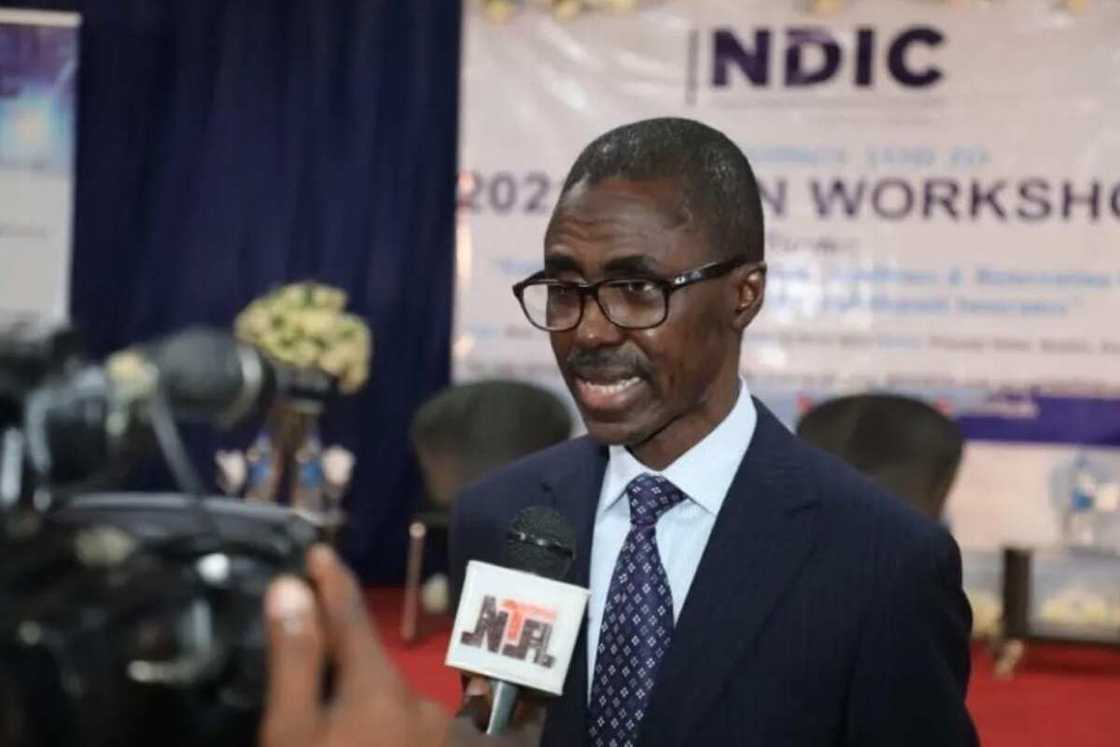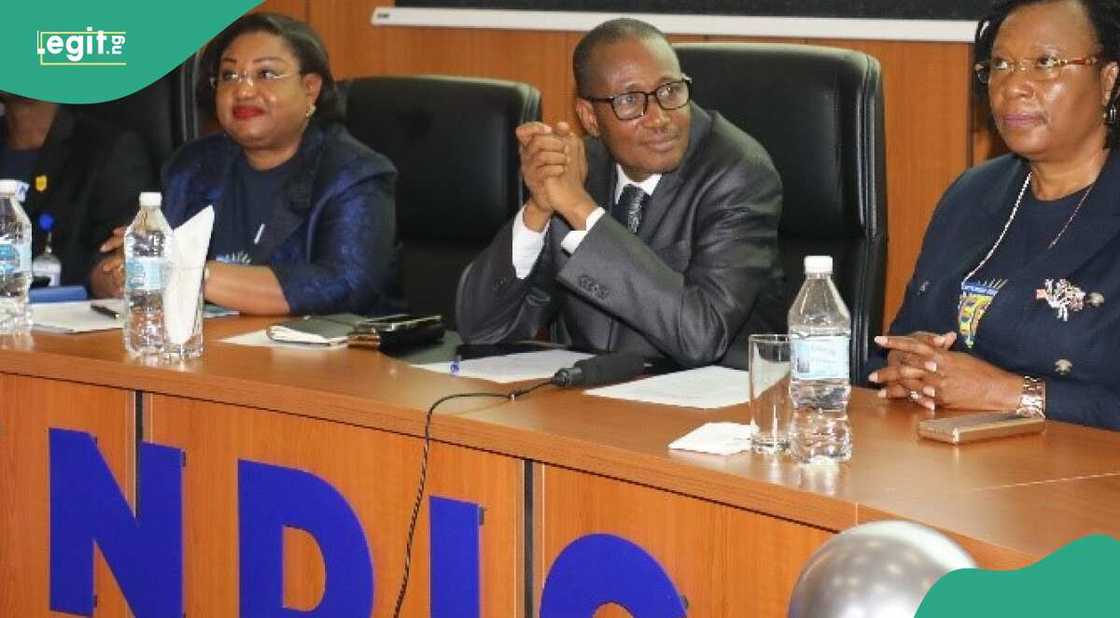NDIC Explains Reason for Delayed Payments to Heritage Bank, Other Failed Banks' Customers
- The Nigerian Deposit Insurance Corporation (NDIC) is responsible for liquidating assets belonging to failed banks and settling depositors
- Its mandate has seen it liquidate assets belonging to several failed banks, including Heritage Bank, which is the most recent
- The Corporation is, however, dealing with major challenges in the form of lawsuits initiated by former staff of these failed banks
Ruth Okwumbu-Imafidon, a journalist with Legit.ng, has over a decade of experience in business reporting across digital and mainstream media.
The Nigerian Deposit Insurance Corporation has explained some of the challenges preventing it from liquidating failed banks and paying customers.
The Acting Managing Director/Chief Executive of NDIC, Emily Osuji, stated that the commission often has to deal with several limitations that come from the bank being tied up in legal cases.
Osuji observed that in many of the failed banks, there are often lengthy litigations from former bank employees that encumber the assets, making it impossible for the NDIC to liquidate them.

Source: UGC
Osuji disclosed this while speaking on Thursday at a sensitisation seminar for judges of the National Industrial Court and members of the Investment and Securities Tribunal in Lagos.
NDIC identifies challenges to bank asset liquidation
Osuji said that some of the cases could be about unpaid salaries, severance payments, exit packages, and benefits for the former employees of the failed banks.
She called on the judges of the National Industrial Court to handle cases involving banks undergoing liquidation carefully, following the order of payment priorities already determined in the NDIC Act 2023.
She said:
“It is important for judges of the National Industrial Court to re-examine the priority of claims as stipulated under the NDIC Act, 2023, when adjudicating such matters. This approach is crucial to ensure the protection of the law on priority of claims in bank liquidation.”
According to The PUNCH, the seminar was jointly organized by the National Judicial Institute (NJI) and the NDIC to enhance cooperation.
Speaking further on the matter, Osuji pointed out that such cases pose a major challenge to the NDIC in carrying out its mandate of liquidation, and it is further worsened when judgment is obtained and executed against the assets of the NDIC.
How court rulings affect NDIC mandate
The NDIC acting DG noted that the commission recorded some achievements in the orderly and efficient closure of Heritage Bank.
She, however, insisted that they often had to deal with court rulings that affect their mandates, and expressed optimism that the seminar would help minimise such incidents.
When a bank fails, NDIC takes over the assets to liquidate and settle depositors and creditors, as was the case with the recently failed Ahocol Savings and Loans.
When the assets are tied up in lawsuits, this could delay the process. This was the case of Premier Commercial Bank, where the NDIC only started paying depositors 25 years after the bank failed.
Backing what she said, the NJI Administrator, Salisu Abdullahi, charged the judicial officers to take the extra efforts to understand the technicalities of financial laws and their far-reaching implications.
He called for further engagement and discourse on global best practices, legal precedents, and policy directions to enhance confidence in Nigeria’s financial and legal system.

Read also
Lawmakers declare end to 7% cost of collection, other import charges, order Nigeria Customs to stop

Source: Facebook
Abdullahi said:
“The Nigerian banking sector continues to evolve in response to technological disruptions and financial innovations. Digital banking, cryptocurrency, and decentralised finance have introduced new dimensions to financial transactions, prompting regulators to adapt swiftly. These developments necessitate a judiciary that is forward-thinking and adaptable to emerging financial realities.”
NDIC liquidates Heritage Bank assets to repay depositors
In related news, the NDIC has liquidated Heritage Bank and announced that depositors who had more than N5 million in accounts before it closed will start getting part of their money back.
Legit.ng earlier reported that the depositors got quite restless and unsure of their funds when the bank suddenly shut down.
The Central Bank of Nigeria (CBN) withdrew Heritage Bank’s licence on June 3, 2024, due to financial problems.
Source: Legit.ng




